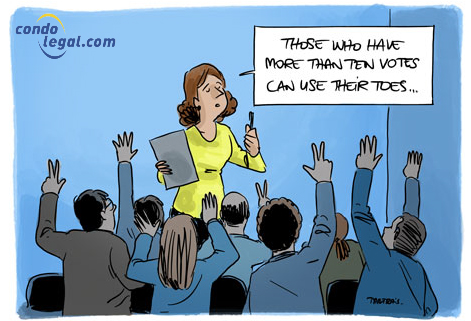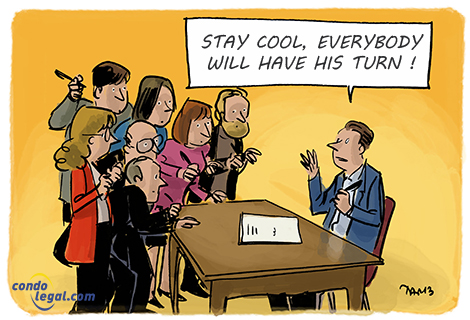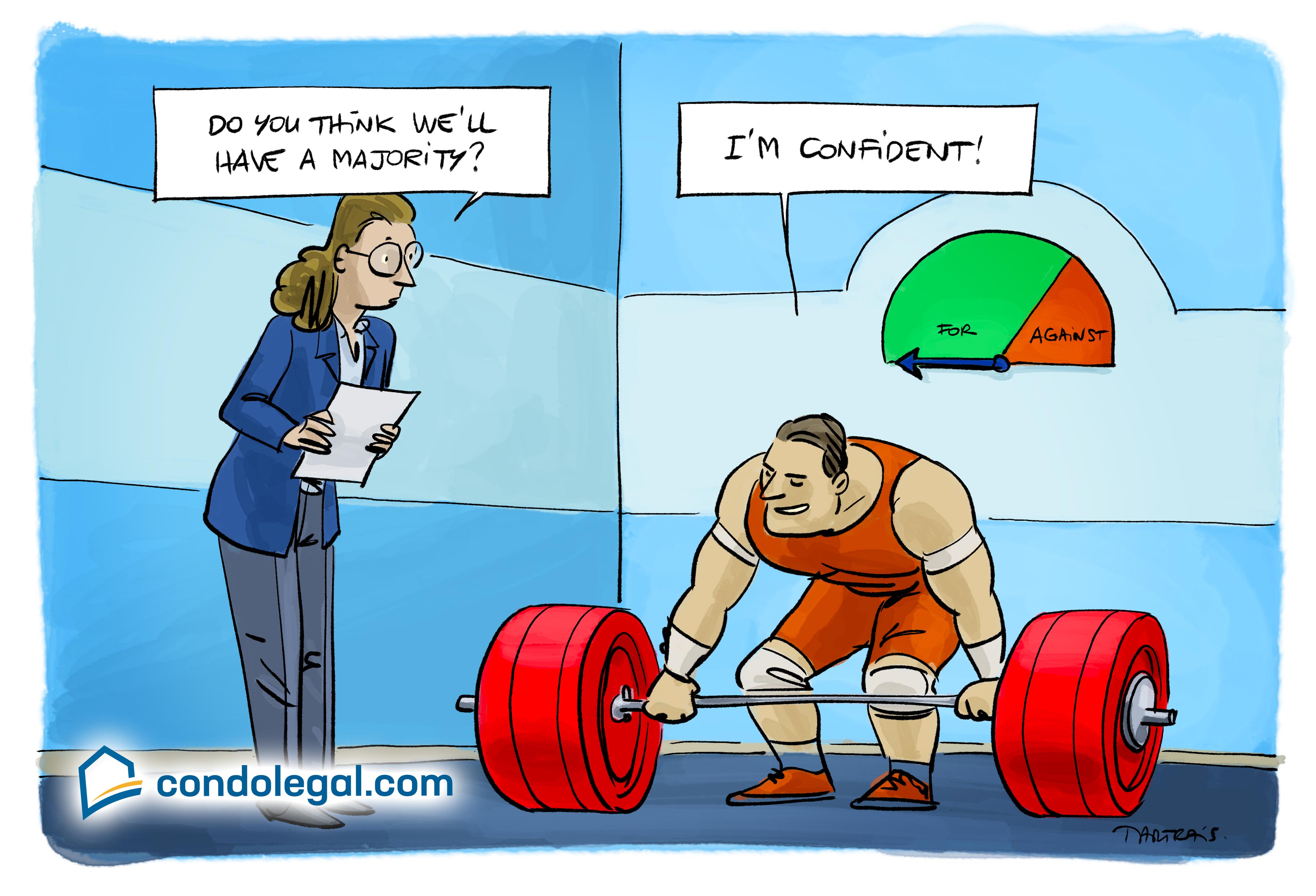21 Articles

In co-ownership management, co-owners are tasked with making decisions on various aspects of their building that go beyond the powers granted to the board of directors. Typically, decisions within the syndicate's remit are made by a majority of the votes of co-owners present or represented at the meeting at the time of voting (more than 50%). This majority, legally referred to as an absolute majority, is required for routine decisions made by the assembly, unless the…...

An attendance sheet must be kept for each co-owner's meeting. However, the Civil Code of Québec does not specify any specific rules, such as the person responsible for its establishment, or the time when this formality must be completed. The declaration of co-ownership generally stipulates that it must be prepared by the directors or the secretary of the syndicate before the meeting is held. This attendance sheet is the physical proof of the presence…...

The Civil Code of Quebec, in articles 1098 and 1108, establishes a "double majority" for certain significant decisions of the co-ownership assembly, requiring a consensus in both the number of co-owners and voting rights. Article 1098 of the Civil Code of Quebec deals with major decisions such as changing of use of the immovable, while article 1108 of the Civil Code of Quebec allows for the termination of co-ownership. These provisions ensure thoughtful decision-making, protect the individual rights…...

The Civil Code of Quebec requires an enhanced majority for certain decisions that have a greater impact on the community of co-owners or on their individual rights. These decisions can significantly influence the daily lives of co-owners and the value of their properties. In addition, this enhanced majority is intended to temper the influence of certain co-owners who, because of the large number of voting rights they hold over their fraction, could otherwise dominate the decisions taken…...

The director of a co-ownership is called to play a key role in the sound management of the co-ownership and preservation of co-owners' assets. To strengthen and maintain the relationship of trust with them, every director must be fair, honest and loyal toward the Syndicate and the co-owners. The director must also respect ethical standards and the Code of conduct stipulated by the Civil Code of Quebec and the declaration of co-ownership. In case of doubt, directors must act according to the…...

The first sentence of article 1090 of the Quebec civil Code states that "Each co-owner is entitled to a number of votes at a general meeting proportionate to the relative value of his fraction." The number of votes is related to the share of property rights each co-owner holds in the building. Therefore, the co-owner of a private portion whose relative value is higher will have more voting rights. In return, he or she will have to contribute to a larger portion…...

The Board of Directors (the Board) is made up of members called directors. Their appointment is subject to certain formalities. In this regard, article 1084 of the Civil Code of Québec provides that the composition of the Board of the syndicate, the method of appointment, replacement or remuneration of the directors, as well as the other terms and conditions of their office, are fixed by the by-laws of an immovable. Each director acts as a mandatary of the syndicate of…...

The provisions related to the appointment and replacement of the directors are provided for in the By-laws of the immovable (2nd part of the declaration of co-ownership). In their absence, they are also found in the Civil Code of Quebec (C.C.Q.). The law thus leaves it to the co-owners to establish themselves, in their declaration of co-ownership, the rules that best suit them. However, the appointment of directors generally falls within the competence of the…...

The relevant information of co-ownerships must be declared with the “Registraire des entreprises du Québec” (the Québec Enterprises Registrar). This declaration is intended to render accessible essential information, either to the public or enterprises that deal with the syndicate of co-owners. Furthermore, at the start-up of a syndicate, the Board of Directors must file – usually by the interim director – a declaration of registration in virtue of the Act respecting the legal publicity of enterprises. This must be done no later than 60 days…...

The interpretation of a declaration of co-ownership during a general meeting of the co-owners is sometimes problematic. If, moreover, it has been published before the coming into force of the Civil Code of Québec, in 1994, things can get dicey. In order to avoid potential conflicts between co-owners, caused by an outdated declaration of co-ownership, it is essential to have it rewritten, if it has been published before January 1, 1994. A professional with experience…...
